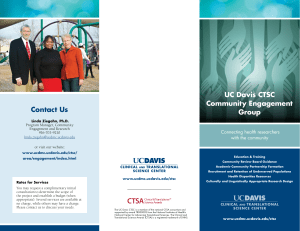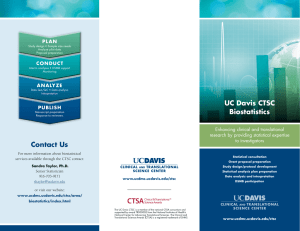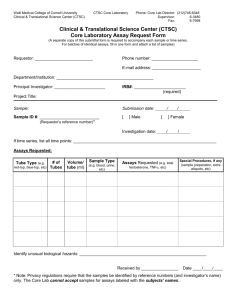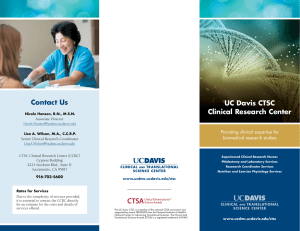Sponsor Invoicing (industry- sponsored studies only) CHAPTER 11: 11.1 Research Account Statements
advertisement
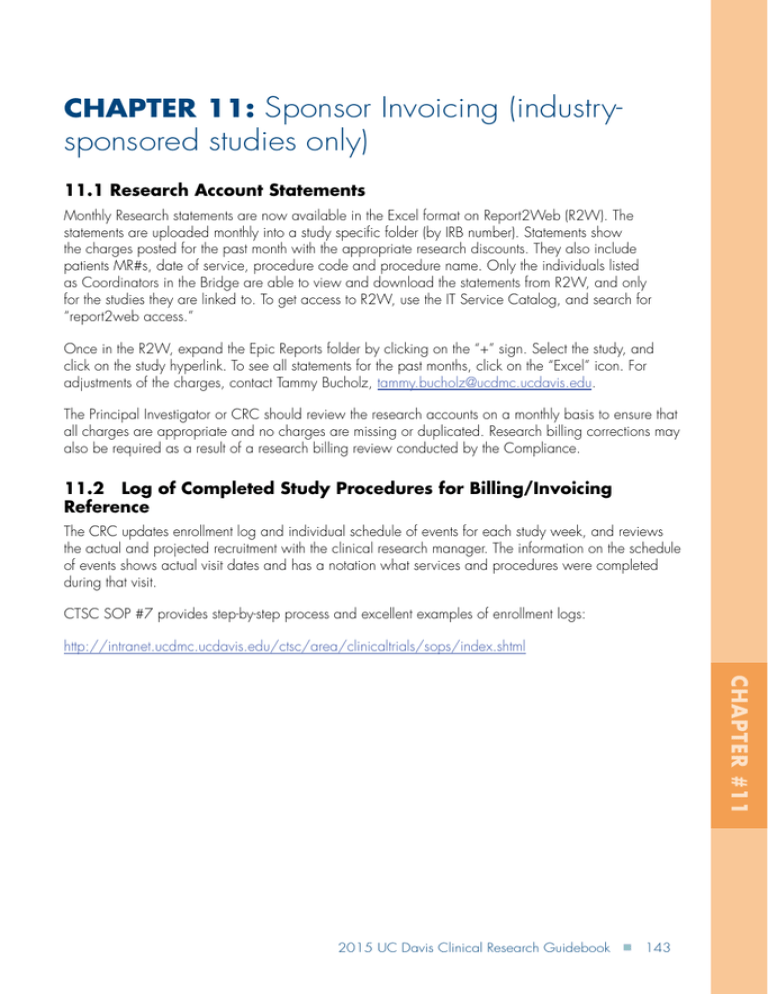
CHAPTER 11: Sponsor Invoicing (industry- sponsored studies only) 11.1Research Account Statements Monthly Research statements are now available in the Excel format on Report2Web (R2W). The statements are uploaded monthly into a study specific folder (by IRB number). Statements show the charges posted for the past month with the appropriate research discounts. They also include patients MR#s, date of service, procedure code and procedure name. Only the individuals listed as Coordinators in the Bridge are able to view and download the statements from R2W, and only for the studies they are linked to. To get access to R2W, use the IT Service Catalog, and search for “report2web access.” Once in the R2W, expand the Epic Reports folder by clicking on the “+” sign. Select the study, and click on the study hyperlink. To see all statements for the past months, click on the “Excel” icon. For adjustments of the charges, contact Tammy Bucholz, tammy.bucholz@ucdmc.ucdavis.edu. The Principal Investigator or CRC should review the research accounts on a monthly basis to ensure that all charges are appropriate and no charges are missing or duplicated. Research billing corrections may also be required as a result of a research billing review conducted by the Compliance. 11.2 Log of Completed Study Procedures for Billing/Invoicing Reference The CRC updates enrollment log and individual schedule of events for each study week, and reviews the actual and projected recruitment with the clinical research manager. The information on the schedule of events shows actual visit dates and has a notation what services and procedures were completed during that visit. CTSC SOP #7 provides step-by-step process and excellent examples of enrollment logs: http://intranet.ucdmc.ucdavis.edu/ctsc/area/clinicaltrials/sops/index.shtml CHAPTER #11 2015 UC Davis Clinical Research Guidebook n 143 An example of visit tracking is shown here: A financial analyst uses this information to convert completed visits into Receivables by using the contracted amounts per visit/procedure. All costs for rescheduled visits, delayed procedures, adverse events and any other “invoiceable ”items are also captured at this time. CHAPTER #11 An example of Receivables tracking is shown here: 11.3 Invoices for the Sponsor The resulting summary of occurred costs is transferred on the Invoice sent to the Sponsor. The invoice is prepared and formatted in accordance with payment terms outlined in the contract and is sent to the sponsor. 144 n UC Davis Clinical and Translational Science Center In addition, the CRC, the clinical research manager and the financial analyst analyze the projected visit schedule based on likely dates of future patient/last visit. This data support estimates of the projected study revenue. The logs and invoices are stored in the Financial Binder. Hospital Policies and Procedures P&P 1802 and P&P 1816 require that all departments prepare a DaFIS Accounts Receivable entry to reflect amounts due to the University from the study sponsors for services rendered. Since each clinical trial contract has unique terms and payment schedules, a separate accounts receivable file for each contract should be established to house data for invoice preparation. The same amount as on the sponsor invoice is entered into the DaFIS system Research payments (cash collection) should be directed to the CRC’s department address. Once received, the cash payment is reconciled against outstanding invoices and DaFIS AR entries. The coordinator will cite the study’s DaFIS account number on the payment and forward to the department to credit to the correct account. If needed, the coordinator should request from the sponsor a detailed breakdown of the payment. For details see CTSC SOP #7 Financial Oversight of Clinical Trials (http://intranet.ucdmc.ucdavis. edu/ctsc/area/clinicaltrials/sops/index.shtml) 11.4 PI Minimum Effort recovery for PRDRUG trials A PI must dedicate a minimum of 1% effort to a clinical trial in PRDRUG fund category (industrysponsored clinical trial). This effort can either be cost shared or directly charged to the trial (CTSC SOP#7 and CTSC SOP#9). Cost shared” means committed time that is paid by sources other than the extramurally funded project; “direct charged” means committed time that is paid (i.e. directly charged) by the extramurally funded project. At the end of the trial, a review must be completed to ensure full project costing before a residual balance may be transferred to a R & E account: a. The Principal Investigator minimum effort of 1% must be charged for the length of the trial. If it was previously cost shared, this cost sharing must be replaced with charged effort. For example: For a five year trial for a Principal Investigator earning $100,000 per year in X + Y salary, $5,000 must be charged to the trial account. For non-federal projects, this transaction may be posted to recent pay periods for ease of administration. CHAPTER #11 b. If the actual effort, calculated by the number of hours spent on the project from the UBT exceeds the minimum 1% estimate, the actual effort should be charged. For example: Per UBT, the following Principal Investigator effort hours are stated: 30.5 hrs in start up 2 hrs in close out 13 in invoceables 18.5 per patient (10 patients), total of 185 hrs Total 230.5 hrs For the PI earning $100,000 per year, the hourly rate is $47.90 per hour ($100,000 / 2088 hrs). The actual charge to the project should be $11,000 prior to any transfer of residual funds. For non-federal projects, this transaction may be posted to recent pay periods for ease of administration. 2015 UC Davis Clinical Research Guidebook n 145

